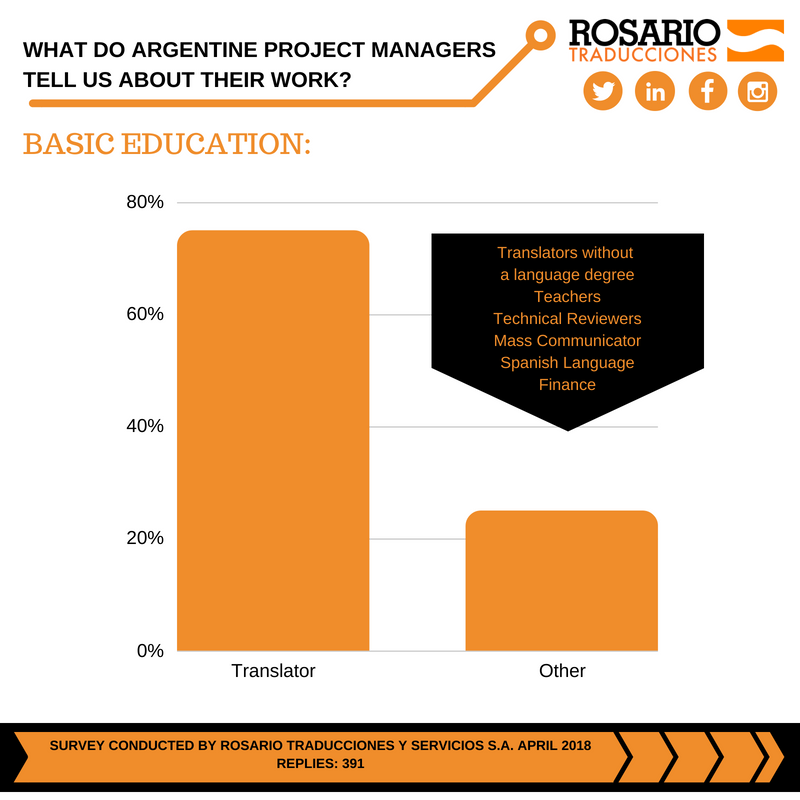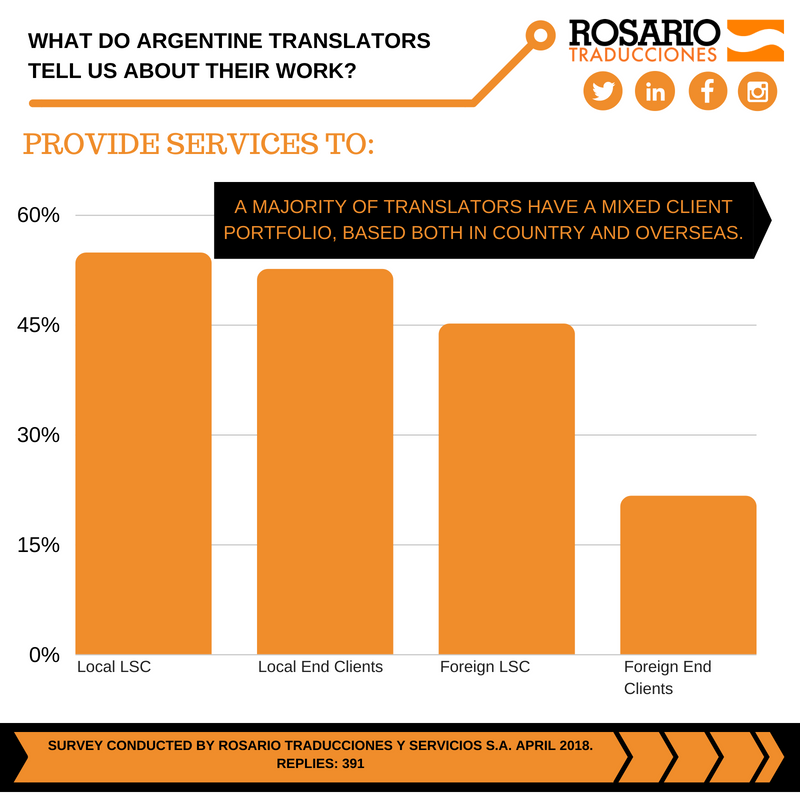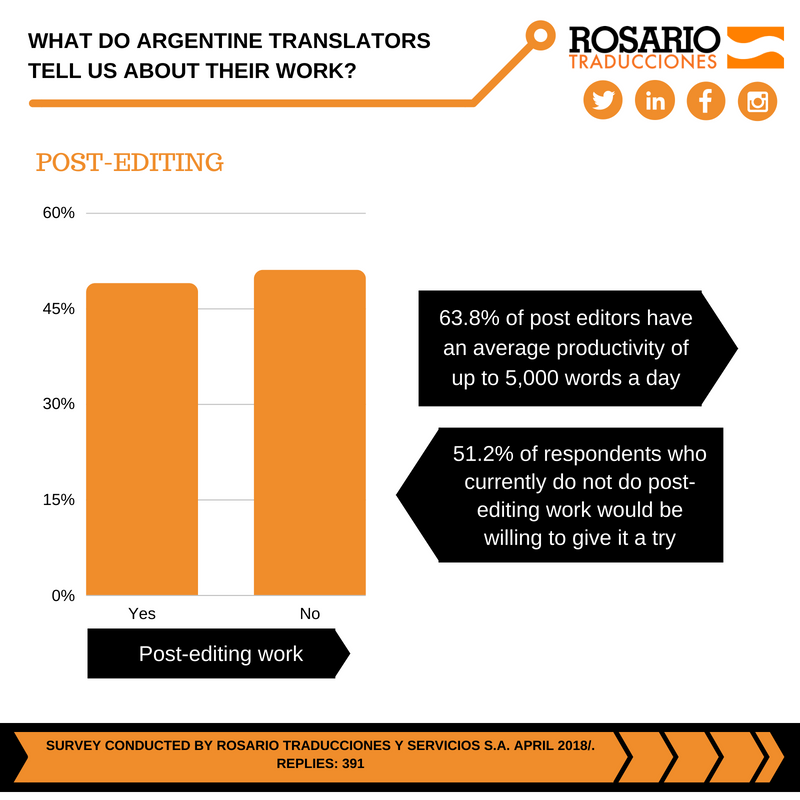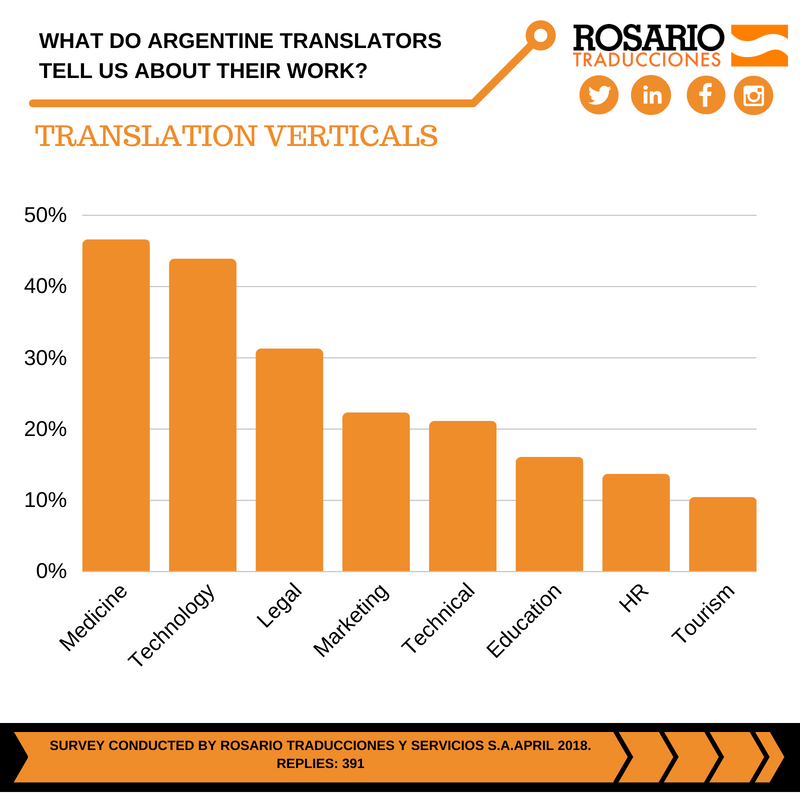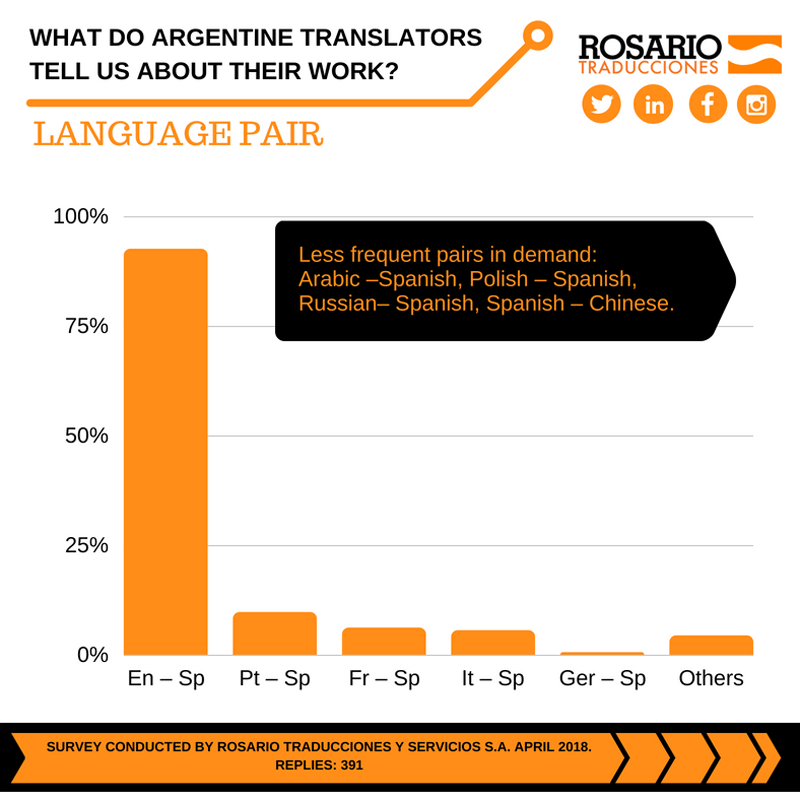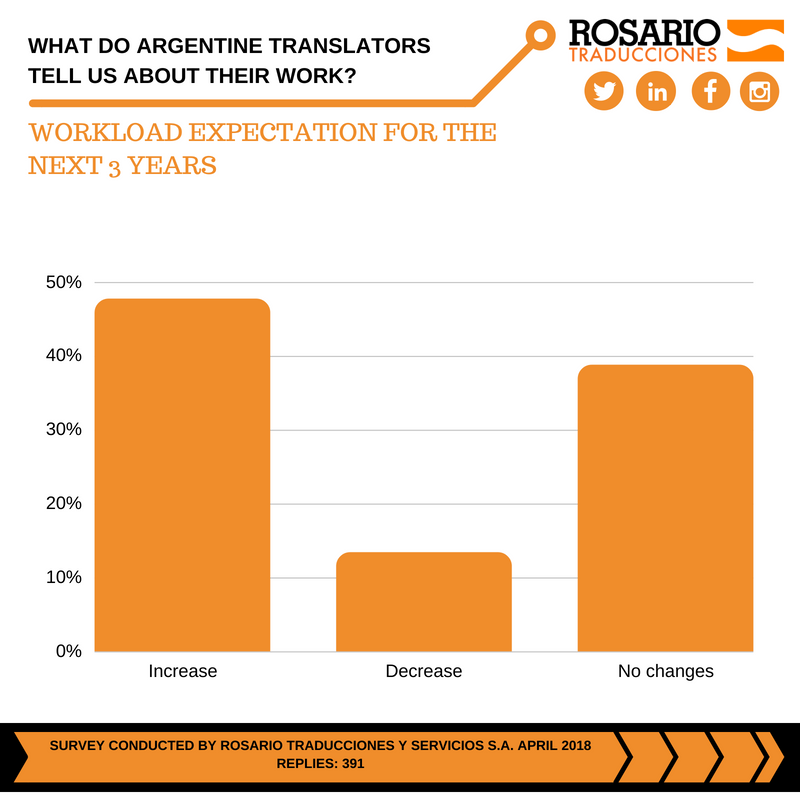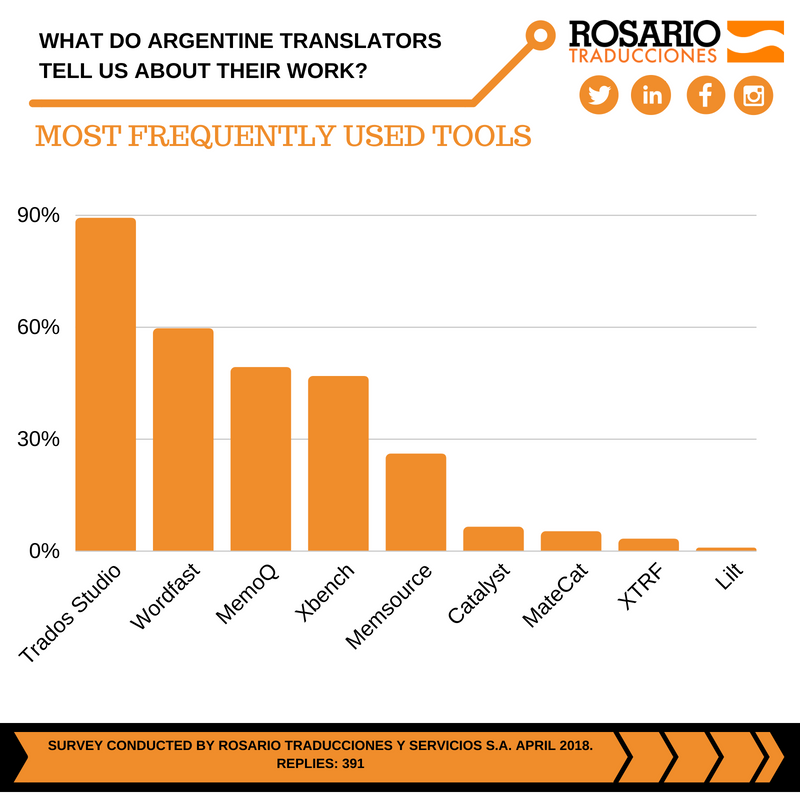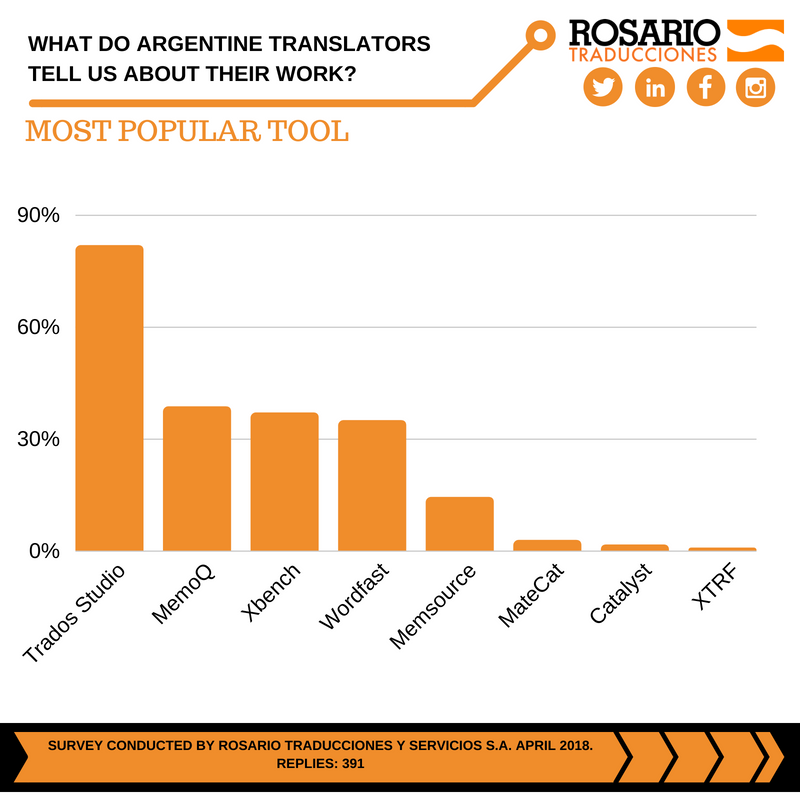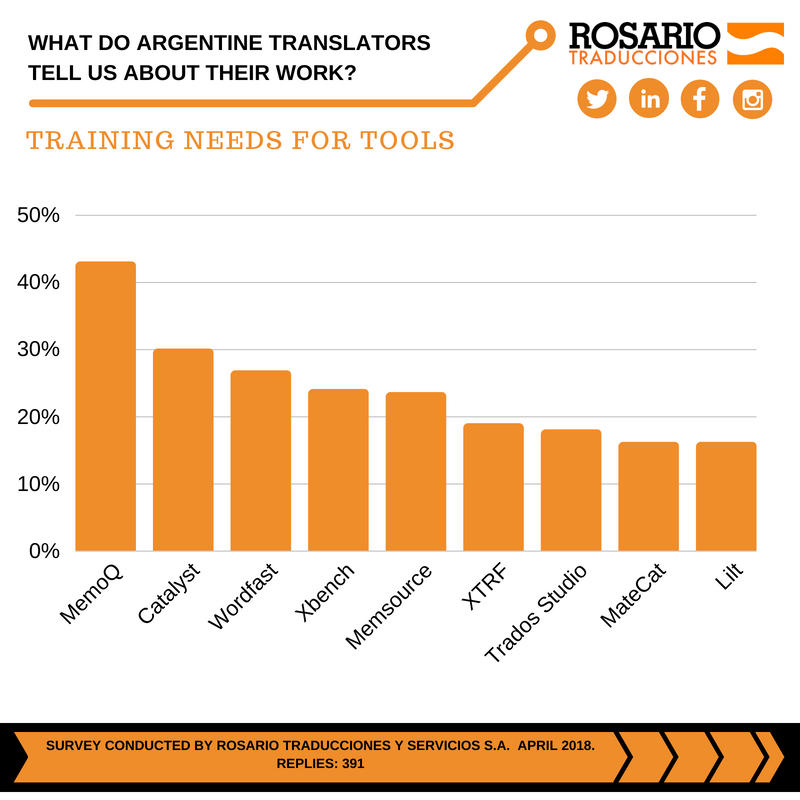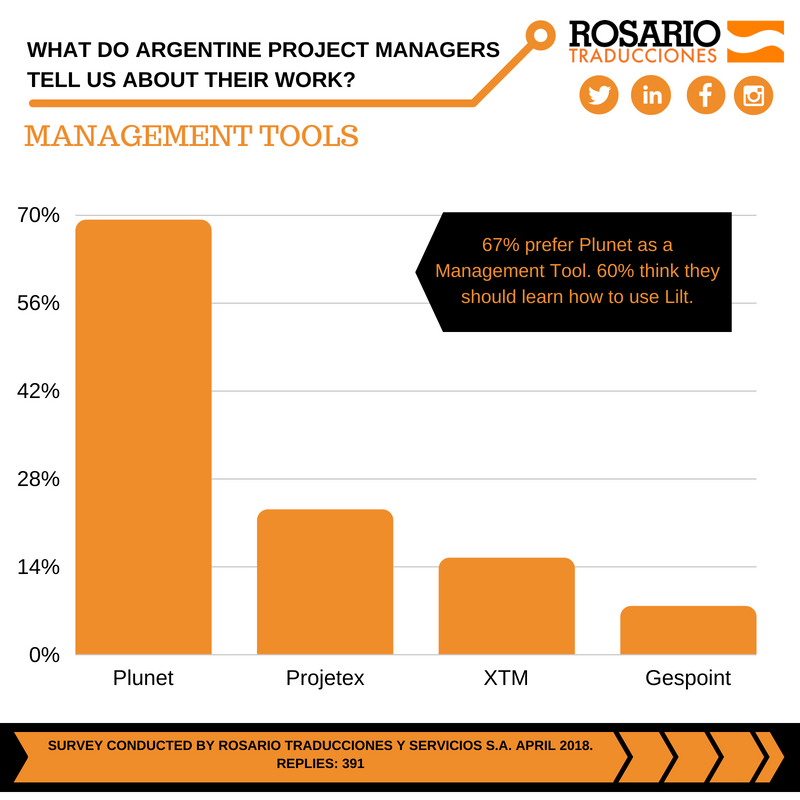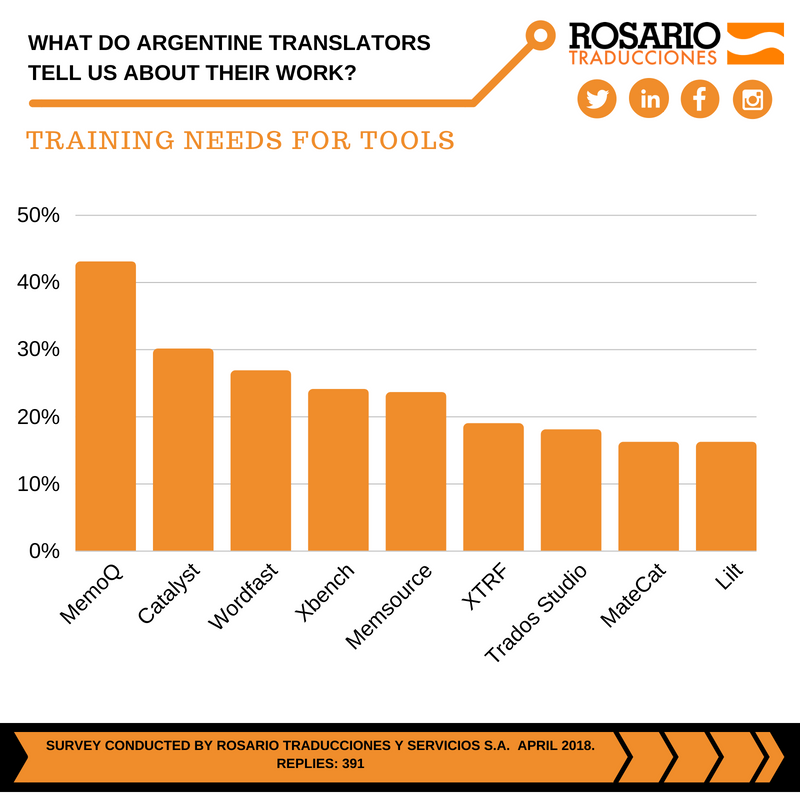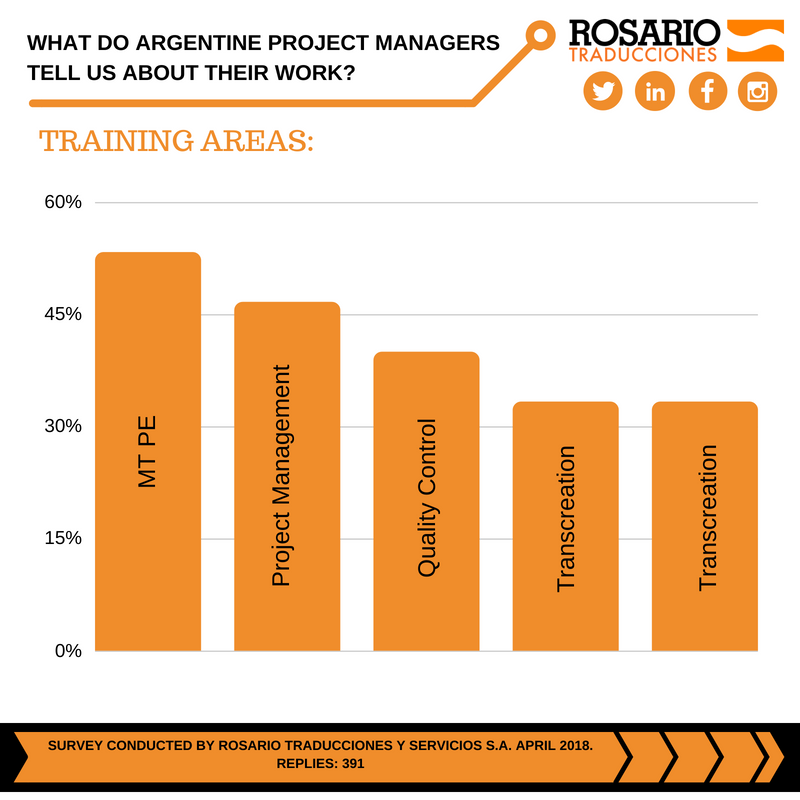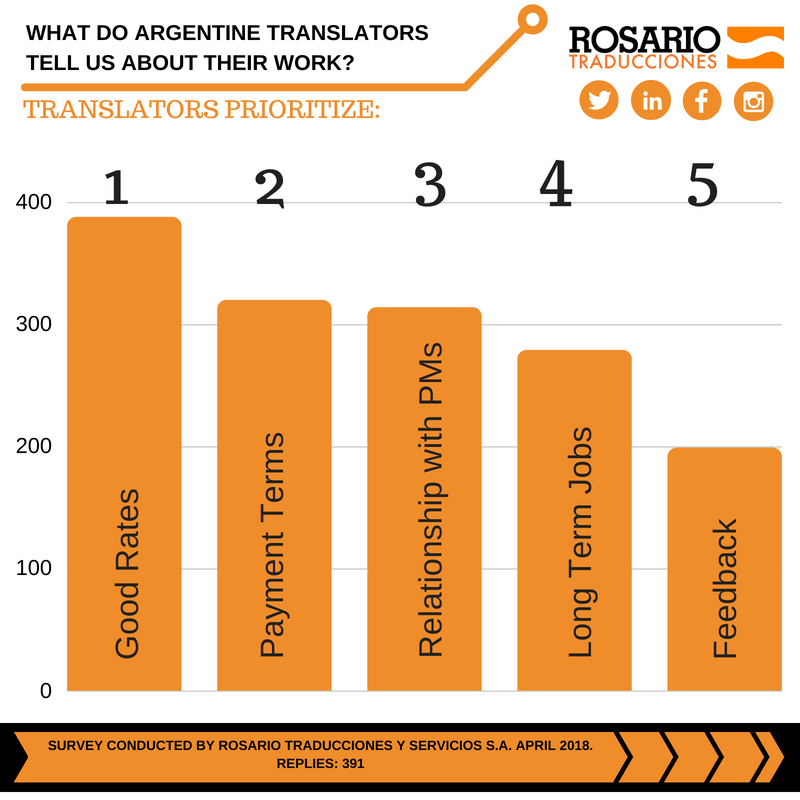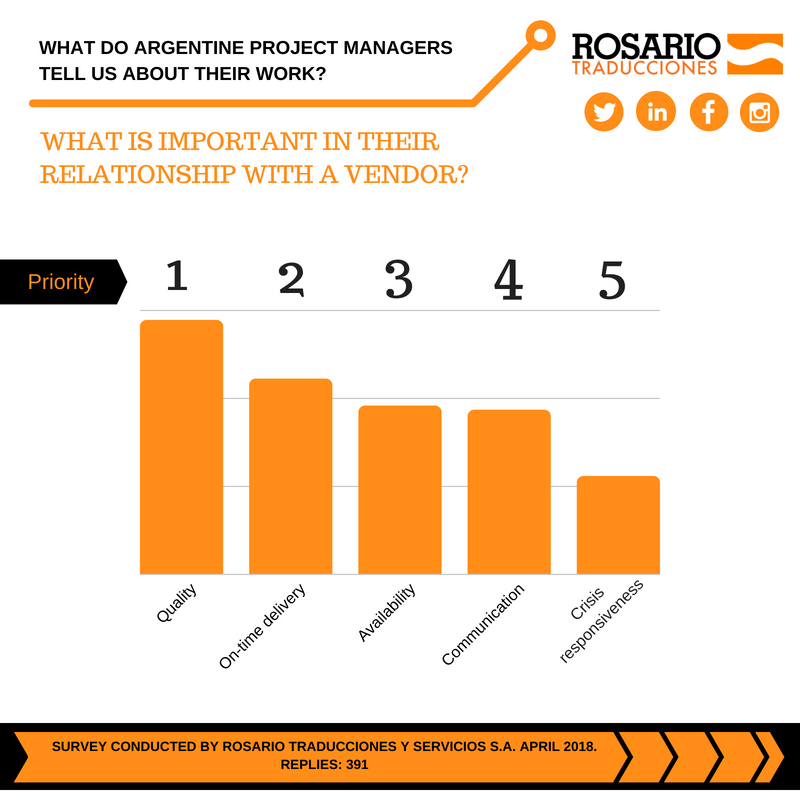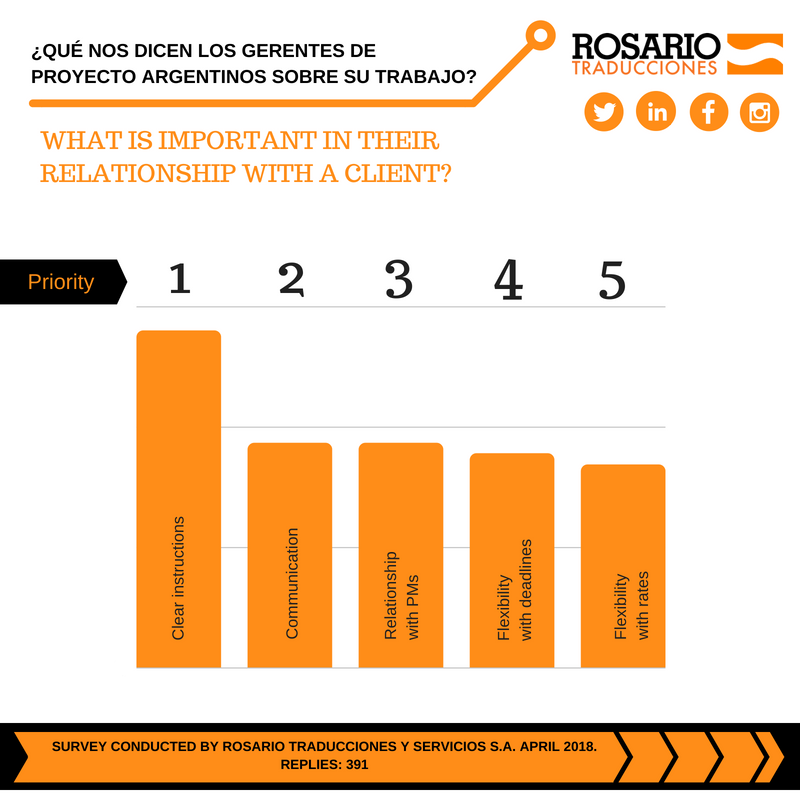TRENDS IN ARGENTINA’S TRANSLATION INDUSTRY
Rosario Traducciones y Servicios S.A. completed the second annual edition of its survey of the latest trends in Argentina’s translation industry. Like last year’s edition, this year’s survey focuses on the industry’s key aspects with the objective of detecting all areas that could facilitate decision-making processes of the different stakeholders.
The survey questionnaire was answered by translators, editors and project managers—key players in the industry—with a total of 391 responses.
The different topics explored in the survey include: demographic issues, experience in the industry, translation tools, training interests, work prospects and work relations. The survey was carried out during the month of April 2018.
For whom are these survey results most useful?
These results can be used by:
local translation companies (applying them for a better administration of their resources);
end clients (for an overview of the composition of the translation industry in Argentina);
educational institutions and translation industry associations (so they can assess the interest in job training in relation to the current industry context) and
language professionals (those interested in staying abreast of current trends and familiarizing themselves with the reality of their peers).
10 + 1 Highlights:
1 – The majority of professionals doing translations, editing work and project management are translators
A degree in translation is the educational foundation of those who carry out different tasks in the industry.
Translators handle 88.89% of all translation work.
Almost two-thirds (64%) of translators also do editing work. In the case of
project managers, 75% are translators employed in those positions.
2 – Very few only do editing work
Only
1.53% of the survey participants indicated that they
only do editing work. The vast majority combine translation work with post-editing and editing tasks.
3 – Translators are freelancers; project managers work for a company
The main difference between these two actors in the industry is that
translators work as
freelancers (96.27%) with
multiple sources of work (local companies, 54.85%; local end clients, 52.61%; foreign-based companies, 45.15%; foreign-based end clients, 21.64%). On the other hand,
project managers (73.33%) are employed under contract with a company with an eight-hour workday.
4 – Post-editing is gaining followers
Just over half of the survey participants (51.04%)
have never done post-editing work but half of them indicated that they would do that type of work if they were to receive a post-editing job proposal.
5 – The 5 most translated subjects are. . .
Medicine (46.55%), technology (43.84%), legal (31.83%), marketing (21.23%), and technical (20.63%).
6 – English–Spanish is the language pair in highest demand, but not the only one
A ranking of the different language pairs in demand revealed:
English – Spanish (92.60%), Portuguese – Spanish (9.76%), French – Spanish (6.21%) and Italian – Spanish (5.62%). There are also less frequent pairs in demand: Arabic –Spanish, Polish – Spanish, Russian– Spanish, Spanish – Chinese.
7 – Work prospects on the rise
Although there are still those who believe that machine translation will hurt the industry, key actors such as translators and project managers say that their volume of work has
increased in the last three years (38.06% and 46.67%, respectively) and, in the majority of the cases, they expect to see a
continued rise in demand over the next three years (47.76% and 66.67%, respectively).
8 – Trados: the preferred tool with the highest level of use among translators
The
five tools most frequently used by translators are:
Trados Studio (89.20%), Wordfast (59.60%), MemoQ (49.20%), Xbench (46,80%) and Memsource (26.00%).
The five most preferred tools: Trados Studio (81.89%), MemoQ (38.68%), Xbench (37.04%) and Wordfast (34.98%).
The top five tools translators think they should learn to use: MemoQ (43.06%), Catalyst (30,09%), Wordfast (26,85%), Xbench (24,07%) and Memsource (23.61%).
9 – Plunet: the preferred management tool with the highest level of use
The
most used [project] management tools among project managers are:
Plunet (69.23%) and Projetex (23.08%). The percentage of usage preferences and the need to learn how to use management tools were similar. The
translation tools most frequently used by project managers are: Trados Studio (93.33%) and Xbench (93.33%).
10 – Tools and machine translation: the two most requested areas for training
The
five areas for training most frequently cited by translators are:
translation tools (50.19%), quality control (47.51%), Spanish language rules (37.93%), machine translation/post-editing (33.33%) and project management (33.33%). In the case of
project managers, they indicated that they would like to be trained in:
automatic translation/post-editing (53.33%), project management (46.67%), quality control (40.00%), transcreation (33.33%) and marketing for translators (33.33%).
11 – Most valued aspects: case by case
The aspects that
translators prioritize the most in their relationships with companies, based on a scale from one to five, they
prioritize rate (41.04%), prompt and timely payment (32.46%), a good relationship with the project manager (30.75%), long-term work (26.79%) and feedback on their completed work (17.84%).
The
project managers were also asked to rate the different aspects of their daily jobs, including their relationships with others. Regarding their
relationship with the company they work for, they prioritize:
job stability above all else (46.67%), a good working environment is the second most valued aspect (45.70%) and prompt payment is the third(35.00%).
As for the
translator/editor assigned a job, project managers value: the
quality of delivered work (66.67%), fulfillment of delivery dates (60.00%) and availability in general (40.00 %).
Regarding the client they manage projects for, project managers value clear work guidelines (53.33%), a good relationship with the client’s corresponding project manager (40.00%) and flexible delivery terms (53.33%).

